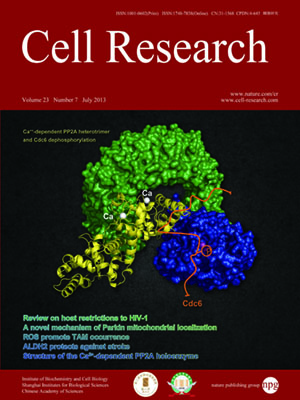
Volume 23, No 7, Jul 2013
ISSN: 1001-0602
EISSN: 1748-7838 2018
impact factor 17.848*
(Clarivate Analytics, 2019)
Volume 23 Issue 7, July 2013: 898-914
ORIGINAL ARTICLES
ROS play a critical role in the differentiation of alternatively activated macrophages and the occurrence of tumor-associated macrophages
Yan Zhang1, Swati Choksi1, Kun Chen1,2, Yelena Pobezinskaya1, Ilona Linnoila1 and Zheng-Gang Liu1
1Cell and Cancer Biology Branch, Center for Cancer Research, National Cancer Institute, National Institutes of Health, 37 Convent Drive, RM1130, Bethesda, MD 20892, USA
2School of Life Sciences, Nanjing University, Nanjing, Jiangsu 210093, China
Correspondence: Zheng-Gang Liu, Tel: +1-301-435-6351; Fax: +1-301-402-1997 (zgliu@helix.nih.gov)
Differentiation to different types of macrophages determines their distinct functions. Tumor-associated macrophages (TAMs) promote tumorigenesis owing to their proangiogenic and immune-suppressive functions similar to those of alternatively activated (M2) macrophages. We report that reactive oxygen species (ROS) production is critical for macrophage differentiation and that inhibition of superoxide (O2−) production specifically blocks the differentiation of M2 macrophages. We found that when monocytes are triggered to differentiate, O2− is generated and is needed for the biphasic ERK activation, which is critical for macrophage differentiation. We demonstrated that ROS elimination by butylated hydroxyanisole (BHA) and other ROS inhibitors blocks macrophage differentiation. However, the inhibitory effect of ROS elimination on macrophage differentiation is overcome when cells are polarized to classically activated (M1), but not M2, macrophages. More importantly, the continuous administration of the ROS inhibitor BHA efficiently blocked the occurrence of TAMs and markedly suppressed tumorigenesis in mouse cancer models. Targeting TAMs by blocking ROS can be a potentially effective method for cancer treatment.
10.1038/cr.2013.75
FULL TEXT | PDF
Browse 11941


